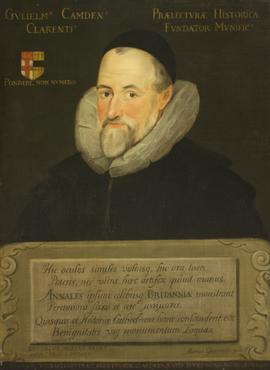CARTERET, JOHN, 2ND EARL GRANVILLE, eldest surviving son of George Carteret, 1st Baron Carteret, and Lady Grace Granville, subsequently created Countess Granville, youngest dau. of John Granville, 1st Earl of Bath; b. 22 Apr 1690; succ. his father as 2nd Baron Granville 22 Sep 1695; at school under Knipe; contributed to collection of verses written by the scholars on death of Duke of Gloucester, 1700; Christ Church, Oxford, matr. 15 Jan 1705/6; DCL 12 Jul 1756; took seat, House of Lords, 25 May 1711; a supporter of the Hanoverian succession; a Lord of the Bedchamber to George I, 16 Oct 1714 - Aug 1721; Bailiff of Jersey, Jul 1715; Lord Lieutenant, Devon, 13 Jul 1716 - 9 Aug 1721; joined section of Whig party headed by Charles Spencer, 3rd Earl of Sunderland (qv), 1717; Ambassador Extraordinary to Sweden, May 1719 - Jun 1720, securing opening of Baltic to British commerce and negotiating peace between the Baltic powers; Secretary of State, Southern Department, 5 Mar 1721 - Apr 1724; Privy Councillor 5 Mar 1721; became a favourite of George I but was not able to rival the supremacy of Sir Robert Walpole; Lord Lieutenant, Ireland, 3 Apr 1724 - Apr 1730; on intimate terms with Swift, who said that Carteret “had a genteeler manner of binding the chains of the kingdom than most of his predecessors”; offered post of Lord Steward of Household on return from Ireland, but declined to take further office under Walpole; took a prominent part in the long struggle against Walpole, and on 13 Feb 1741 unsuccessfully moved his famous resolution in the House of Lords for Walpole’s removal from office; Secretary of State, Northern Department, 12 Feb 1742 - Nov 1744; attended George II during campaign in Germany in 1743, but his pro-Hanoverian policy made him unpopular in Britain; succ. his mother as 2nd Earl Granville, 18 Oct 1744; advised the King not to admit William Pitt to office, but failed himself to form a ministry in Feb 1746; nominated KG 22 Jun 1749, installed 12 Jul 1750; Lord President of the Council from 17 Jun 1751; of the five great men who Horace Walpole believed to have lived in his time, Granville “was most a genius . . . he conceived, knew, expressed what he pleased”; a Busby Trustee from 19 Feb 1710/1; m. 1st, 17 Oct 1710 Frances, only dau. of Sir Robert Worsley, Bart.; m. 2nd, 14 Apr 1744 Lady Sophia Fermor, sister of George Fermor, 2nd Earl of Pomfret (qv); d. 2 Jan 1763. Buried in north aisle of Henry VII’s Chapel, Westminster Abbey. DNB.

